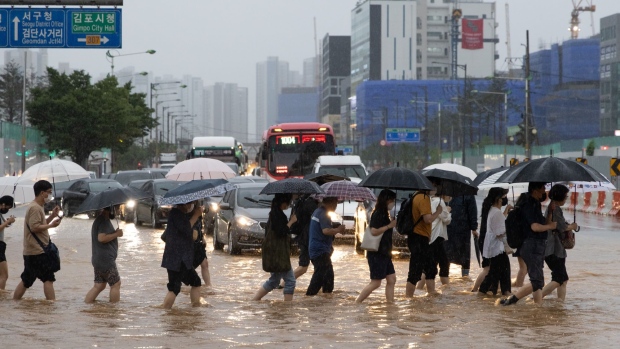Dec 2, 2022
Global Central Banks Brace for ‘Greenflation’ and Climate Change
, Bloomberg News

(Bloomberg) -- Climate change and the energy transition are becoming top of mind for central bank policymakers as they grapple with volatile energy prices and the effects of more frequent extreme weather events.
The shift to green energy may be “inflationary and even slightly stagflationary,” Bank of France Governor Francois Villeroy de Galhau said Friday, speaking virtually on a panel at a central bank conference in Bangkok. “I stress might, we don’t know yet.”
“Looking through” green transition-induced inflation “would be a seductive monetary policy but it’s probably the risky one,” he said Friday. “So we will have to react, but not to overreact.”
Climate-related shocks -- either on the demand or supply-side -- may also stoke inflation, the World Bank’s M. Ayhan Kose said on the same panel. Central banks might have to “reassess” monetary policy frameworks, inflation targets or both.
Policymakers are exploring avenues to manage risks associated with climate change and the price impacts of a transition to greener energy. Earlier this year, European Central Bank Executive Board member Isabel Schnabel said inflation forecasts may need to be revised upward as EU countries try to reduce CO2 emissions.
The risks to emerging-market economies are greater, Kose said on Friday, highlighting the need to provide resources to lower-income nations. “There is tension between emerging markets and developed markets on climate finance,” he said. “We need to be honest about the essence of the challenge we face, and that is financing.”
--With assistance from Zoe Schneeweiss.
©2022 Bloomberg L.P.






